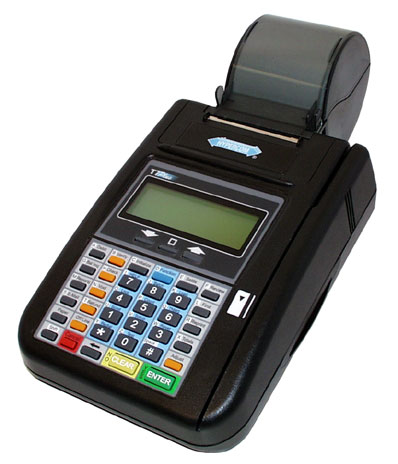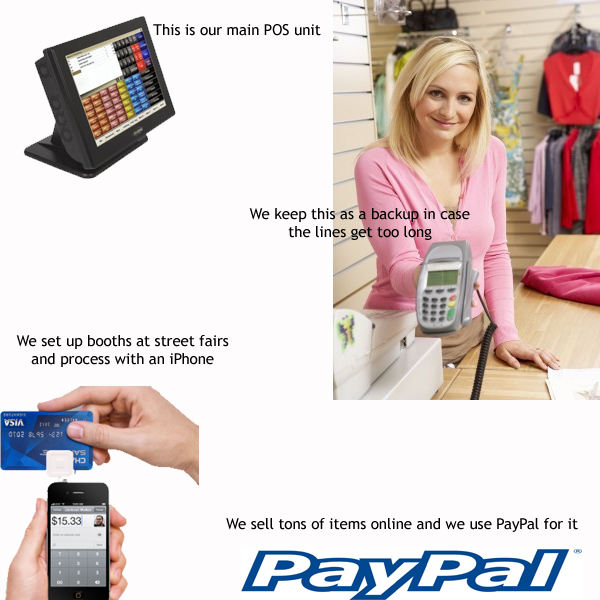Related Headlines
| 12/07/2023 | Merchant Growth secures $300M FF facility |
| 06/13/2023 | Merchant Growth to fund Loop's SMB deals |
| 10/18/2021 | Merchant Growth secures C$4.1M equity cap |
| 07/19/2021 | Merchant Growth acquires Company Capital |
| 02/16/2021 | Merchant Growth launches LOC product |
Related Videos
The State of Fintech Lending (Canada) |
Stories
Merchant Growth Partners with goeasy to Provide Funding via Physical Branches
December 11, 2019 This month Merchant Growth, the Vancouver-based alternative finance company, announced its partnership with goeasy Ltd. that will see Merchant Growth’s services being offered in goeasy branches throughout Canada. Beginning with British Columbia, Alberta, and Saskatchewan in 2019, Merchant Growth aims to have expanded to the remaining provinces in the first quarter of 2020.
This month Merchant Growth, the Vancouver-based alternative finance company, announced its partnership with goeasy Ltd. that will see Merchant Growth’s services being offered in goeasy branches throughout Canada. Beginning with British Columbia, Alberta, and Saskatchewan in 2019, Merchant Growth aims to have expanded to the remaining provinces in the first quarter of 2020.
Under the partnership, goeasy will receive compensation from Merchant Growth for all loans made through them while Merchant Growth will provide the capital.
“goeasy is a unique Canadian success and they’ve done that by being disciplined managers, by putting their customers first, and by building a great reputation for themselves in the industry,” said David Gens, Merchant Growth’s President and CEO. “And what we see in them is an ideal partner in that they have the market reach in terms of brand recognition and locations around the country.”
It is the latter of these factors that make the deal stand out. Given the industry’s standard of digital applications, goeasy and Merchant Growth’s return to brick and mortar branches that offer live human managers, clerks, and even physical paper, marks a turn back towards more historical methods of doing business.
Gens commented on this, stating that “there’s something to be said for face-to-face interactions and for that reason I don’t think you’re ever going to go down to having no bank branches … Having a physical location where you can chat with people about your financial needs is something that will always exist as far as I can see.”
Merchant Advance Capital Rebrands to Merchant Growth
July 3, 2019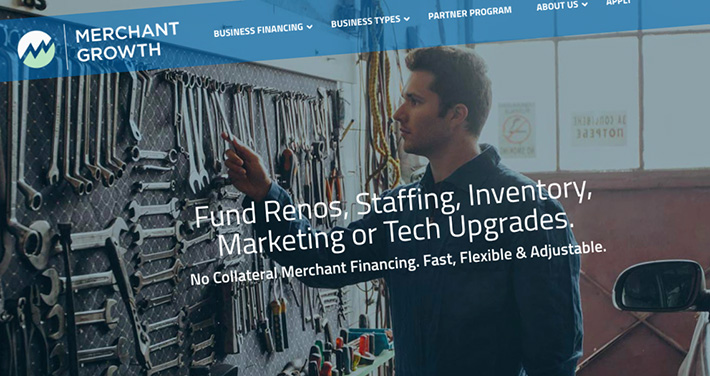 Merchant Advance Capital, which trumpets itself as Canada’s fastest and most transparent small business financier, is rebranding as Merchant Growth.
Merchant Advance Capital, which trumpets itself as Canada’s fastest and most transparent small business financier, is rebranding as Merchant Growth.
The company has offices in Vancouver, BC and Toronto, ON and was founded in 2009.
“I founded our company out of my apartment 10 years ago,” David Gens is quoted as saying in a company announcement. Gens is the company’s president & CEO. “Back then our mission was simply to provide credit to small businesses, and we did that by providing one product, called a ‘merchant advance’. Today, we offer a comprehensive suite of financing solutions delivered with unparalleled convenience. In doing so, our mission has expanded to allowing business owners to achieve unconstrained growth, while reducing the administrative stress of running a business. As we’ve transformed our focus from one credit product to this far-reaching mission, we felt the need for our name to reflect this. We are Merchant Growth.”
Gens has been an oft-quoted source in deBanked over the years. His company closed on a $30 million debt facility last year with Comvest Credit Partners.
Gens is also speaking at deBanked CONNECT Toronto on July 25, 2019. You can register to attend at www.debankedcanada.com.
Fundfi Merchant Funding Expands Services to Canada, Paving the Way for Financial Growth and Innovation
July 11, 2024Fundfi Merchant Funding, a leading provider of innovative financial solutions in the United States, is excited to announce its expansion into the Canadian market. With a proven track record of empowering businesses to achieve their goals through strategic funding, Fundfi Canada Inc. is poised to bring its expertise and dedication to support Canadian enterprises.
The decision to expand into Canada comes at a time when businesses across North America are seeking reliable and flexible financial support to navigate economic landscapes and fuel growth opportunities.
By extending its services to Canadian businesses, Fundfi Canada Inc. aims to bridge the gap between financial needs and solutions, empowering entrepreneurs to thrive in today’s competitive market environment.
The expansion into Canada reflects Fundfi Merchant Funding’s ongoing commitment to innovation, growth, and client satisfaction. By leveraging its extensive experience and deep industry knowledge, Fundfi Canada Inc. aims to become a trusted partner for Canadian businesses seeking reliable and strategic financial support.
As Fundfi Merchant Funding embarks on this exciting new chapter, it invites Canadian businesses to explore the diverse range of financial solutions and opportunities available to them. Whether it’s funding for expansion, equipment upgrades, working capital, or other business needs, Fundfi Canada Inc. is dedicated to helping Canadian businesses thrive and succeed.
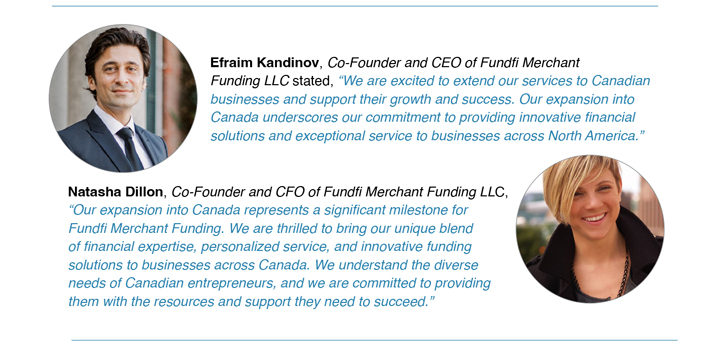
For more information about Fundfi Merchant Funding and its expansion into Canada, please visit www.FundfiMerchantFunding.com.
CFG Merchant Solutions Closes Credit Facility of up to $145 Million to Support Small Business Growth
May 29, 2024NEW YORK, NY. May 29, 2024 – CFG Merchant Solutions, LLC (“CFGMS” or the “Company”), a technology-enabled specialty finance and alternative funding provider, announced the successful completion of a $100.0 million senior credit facility. The credit facility is expandable up to an additional $45.0 million, representing a total capital raise of up to $145.0 million. Proceeds from the funding, secured from a prominent, U.S.-based institutional investor focused on private structured credit, will serve to further fuel the Company’s mission to empower and support the growth of small and medium-sized businesses (SMBs).
Since its founding in 2015, CFGMS has a proven track record of asset performance and profitability, and has funded more than $1.4 billion to over 33,000 SMBs across diverse industries throughout the U.S. With the infusion of additional capital, CFGMS will continue to focus on delivering flexible and accessible financing solutions that empower small businesses to seize growth opportunities, create jobs, and contribute to the overall economic prosperity of the communities they serve.
“We are thrilled to have secured this substantial capital raise, as it reaffirms our commitment to empowering small businesses,” said Andrew Coon, Chief Executive Officer of CFGMS. “We extend our heartfelt gratitude to our investors for their continued trust and support. With this new credit facility, we will be able to reach a wider range of small businesses and provide them with the financial resources they need to thrive.”
Bill Gallagher, President of CFGMS, expressed enthusiasm for the future impact of the capital raise, stating, “This new facility will strengthen our position to ensure our small business clients have access to fast and efficient financing solutions tailored to their unique needs. We are excited to leverage this capital to expand our operations and deepen our commitment to empower U.S. small businesses to succeed.”
Brean Capital, LLC served as the Company’s exclusive financial advisor and sole placement agent in connection with the transaction.
About CFG Merchant Solutions
CFG Merchant Solutions (“CFGMS”) is an independent, technology-enabled alternative funding platform focused on providing capital access to small and mid-sized businesses that have historically been undeserved by traditional financial institutions and may have experienced challenges obtaining timely financing. The Company uses its historical transactional data, proprietary underwriting, predictive analytics, and electronic payment technologies and platforms to assess risk, and provide access to flexible and timely capital.
For additional information about the Company, visit: https://cfgmerchantsolutions.com/.
Contact:
Name: Richard Polgar
Title: Chief Financial Officer
rpolgar@cfgms.com
What the Election Means for The Merchant Cash Advance Business
November 1, 2024David Roitblat is the founder and CEO of Better Accounting Solutions, an accounting firm based in New York City, and a leading authority in specialized accounting for merchant cash advance companies. To connect with David, email david@betteraccountingsolutions.com.
 After what feels like years, next week the United States of America will finally vote in our next president and get a break from the incessant political chatter…until it all resumes the next morning.
After what feels like years, next week the United States of America will finally vote in our next president and get a break from the incessant political chatter…until it all resumes the next morning.
While the implications of this election are obviously enormous in a whole number of arenas, most significantly for us the repercussions of who we elect will have a major effect on the merchant cash advance business. With President Donald Trump and Vice President Kamala Harris proposing very distinct visions for their economic and regulatory agendas, MCA businesses will need to respond to who wins and adjust accordingly.
Here’s a closer look at how the upcoming presidential election might affect the merchant cash advance industry.
1. Tax Policies and Business Borrowing
Trump has promised to extend the Tax Cuts and Jobs Act (TCJA) and further reduce corporate taxes to 15%. This could increase small business profitability, which might lead some companies to rely less on MCA services, opting instead for more traditional financing solutions. However, businesses could still need short-term capital for expansion or to take advantage of new tax incentives, keeping MCA demand steady.
Harris’s administration is expected to take a different approach, focusing on progressive tax policies that could increase the tax burden on corporations and high-income earners. In such a scenario, businesses may experience tighter cash flows and turn to MCAs for quick injections of capital to meet operational needs.
2. Regulatory Climate and Business Sentiment
The regulatory environment will play a major role in shaping MCA activities. Trump’s platform emphasizes deregulation, which could reduce compliance costs and encourage entrepreneurship. With fewer regulatory hurdles, more entrepreneurs might be empowered to take a chance to open their dream businesses and seek short-term financing to fuel growth.
In contrast, Harris is likely to advocate for stronger oversight across industries, which could introduce stricter regulations for MCA companies. Increased compliance requirements would raise operational costs and change how they do business, forcing MCA firms to adapt quickly to remain competitive.
3. Tariffs and Supply Chain Impact
Trade policies are another critical area that will shape demand for MCA services. Trump’s proposed tariffs, such as a blanket 10%-20% on imports, would disrupt industries that rely heavily on global supply chains. Businesses affected by tariffs might seek cash advances to cover working capital needs as they adjust to higher costs and delays. While their loss is our industry’s gain, MCA providers could face greater risks if these businesses struggle to manage cash flow, increasing the chance of defaults.
If Harris focuses on stabilizing international trade through alliances and regulatory frameworks, businesses might experience more stable operations. However, as mentioned earlier, her compliance-related policies could still push some companies to seek short-term funding, keeping MCA services relevant in certain sectors.
4. Interest Rate Policy and Capital Costs
The election will also influence interest rate policy. Trump has criticized the Federal Reserve’s recent actions and indicated that he would like to replace its leadership. If this shift results in looser monetary policy, the cost of borrowing money will decrease, prompting more businesses to take loans from traditional banking institutions instead of MCAs.
On the other hand, if interest rates remain high, businesses may find it harder to secure bank loans. Under these circumstances, MCA services—known for quick access to capital—remain attractive to small businesses facing cash flow challenges.
5. Changes in Consumer Spending and Business Revenues
Both candidates’ economic plans will shape consumer behavior, which directly affects small business revenues—the core market for MCAs. Trump’s focus on reducing taxes and expanding domestic energy production may increase consumer spending in the short term, benefiting retail businesses that rely on discretionary income.
Meanwhile, Harris’s potential focus on healthcare, education, and environmental programs could favor businesses in those sectors. MCA providers may see shifts in their client base, with certain industries flourishing while others experience slower growth. These shifts will influence which businesses turn to MCAs for operational funding or growth capital.
Essentially, Trump’s pro-small business, pro-tariff and pro-deregulation positions would be a major boon for MCA businesses. Harris is expected to call for more taxation, more governmental oversight and compliance ordinances, and stifle economic progress in pursuit of a more “equitable economy”. As the political landscape evolves, being prepared for these changes will be key to thriving in the post-election MCA business environment.
Walmart Now a Direct Funder in the Merchant Cash Advance Industry
September 15, 2024
Ready to enjoy easy access to cash advance funds and flexible financing options? Fuel your growth on Walmart.com with our suite of options.
– Walmart.com
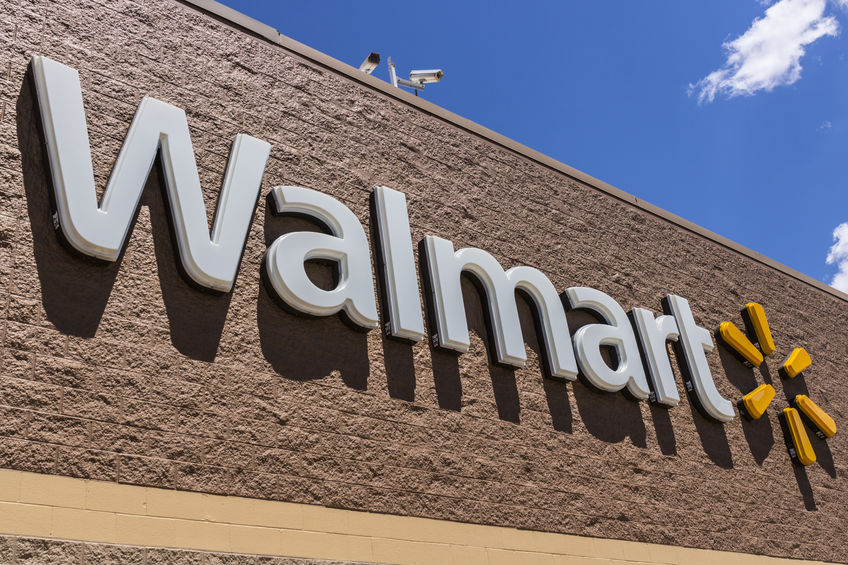 Walmart, which made headlines recently with third party MCA funders Parafin and Payoneer, is now funding MCAs directly as well. The new programs, known as Capital by Walmart and Capital for WFS (Walmart Fulfillment Services), were recently placed on its Marketplace page. Capital by Walmart promotes the program as being “1 flat fee” and “Repayment deductions based on your future sales.”
Walmart, which made headlines recently with third party MCA funders Parafin and Payoneer, is now funding MCAs directly as well. The new programs, known as Capital by Walmart and Capital for WFS (Walmart Fulfillment Services), were recently placed on its Marketplace page. Capital by Walmart promotes the program as being “1 flat fee” and “Repayment deductions based on your future sales.”
An explainer video that went live on August 1st says that they can fund you themselves or fund you through third parties. Video here:
Further, Walmart’s site states that for their in-house funding, they collect from merchants via their Marketplace payouts each settlement cycle. “In case of insufficient funds in the settlement account, we may debit your bank account,” it says.
A Walmart MCA is invite-only for the time being.
Walmart didn’t raise any mention of its funding programs or partners in its latest fiscal quarterly earnings report but did stress that Walmart Marketplace had grown by 32%.
Shopify Capital MCA, Loan Origination Growth Appears to Slow Down
May 9, 2024Shopify Capital, the funding arm of Shopify that provides merchant cash advances and loans to merchants on its platform, experienced no increase in these related receivables in Q1 compared to Q4 2023. The company typically records significant growth in this figure each quarter. Shopify used to broadcast its origination figures far and wide in each quarterly earnings report and call but has since gotten shy about this segment of its business and no longer discloses originations. Instead, its balance sheet line item for “Loans and merchant cash advances” is virtually all there is to go by now and they were listed at $815M in Q1 vs $816M the prior quarter. This, of course, only reflects anything they’ve kept on balance sheet and could be a misleading indicator if those receivables are being sold off or taken on by a third party.
Shopify’s major rival, Amazon, never disclosed origination figures for its Amazon lending program, and in March announced that it was discontinuing its in-house lending program altogether after a 12-year run.
Shopify is still among the largest online small business lenders in the US.

See Post... merchant growth, sharpshooter funding, thinking capital... |
See Post... merchant growth, greenbox capital, , https://debanked.com/canada/directory/... |



